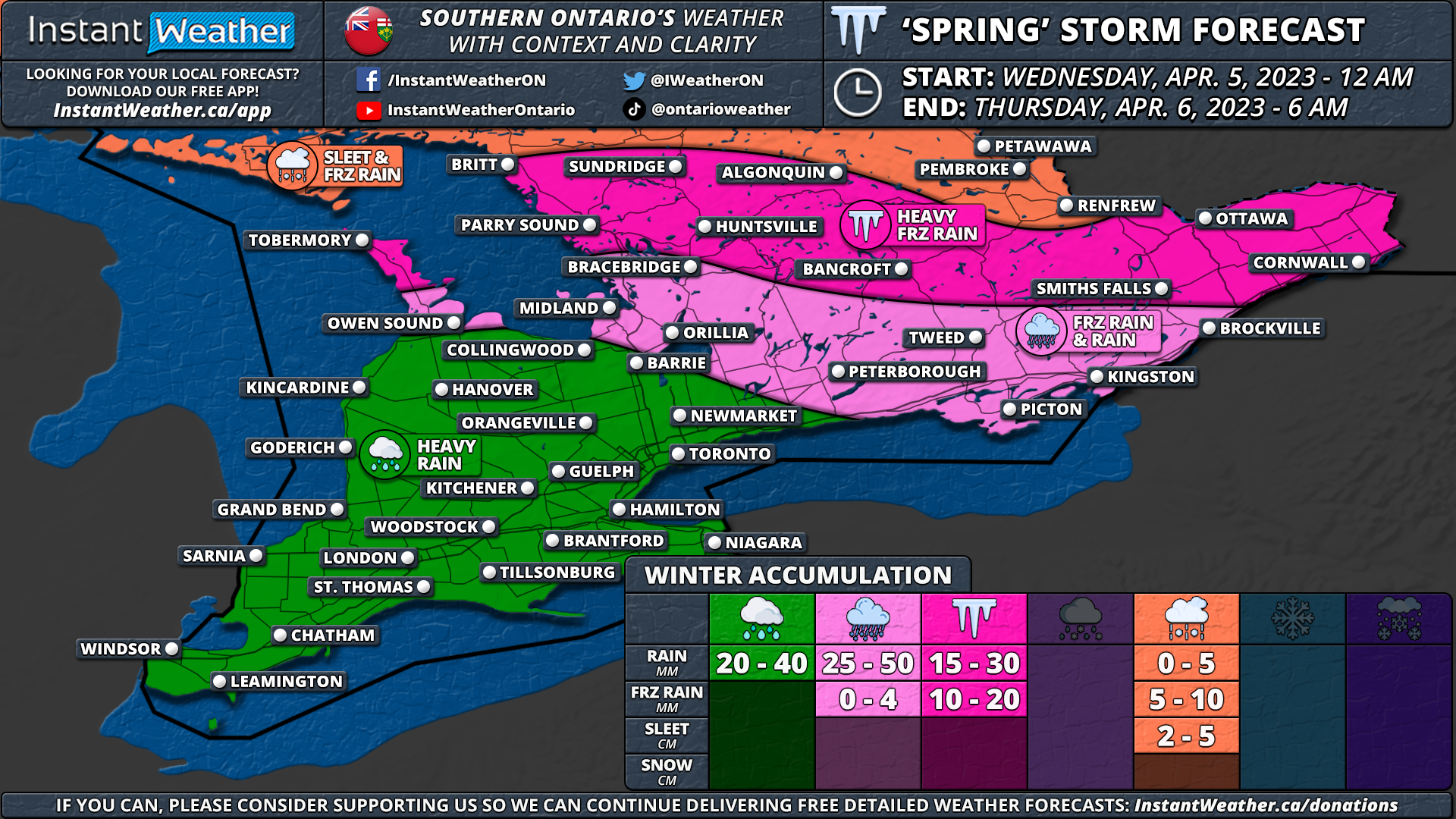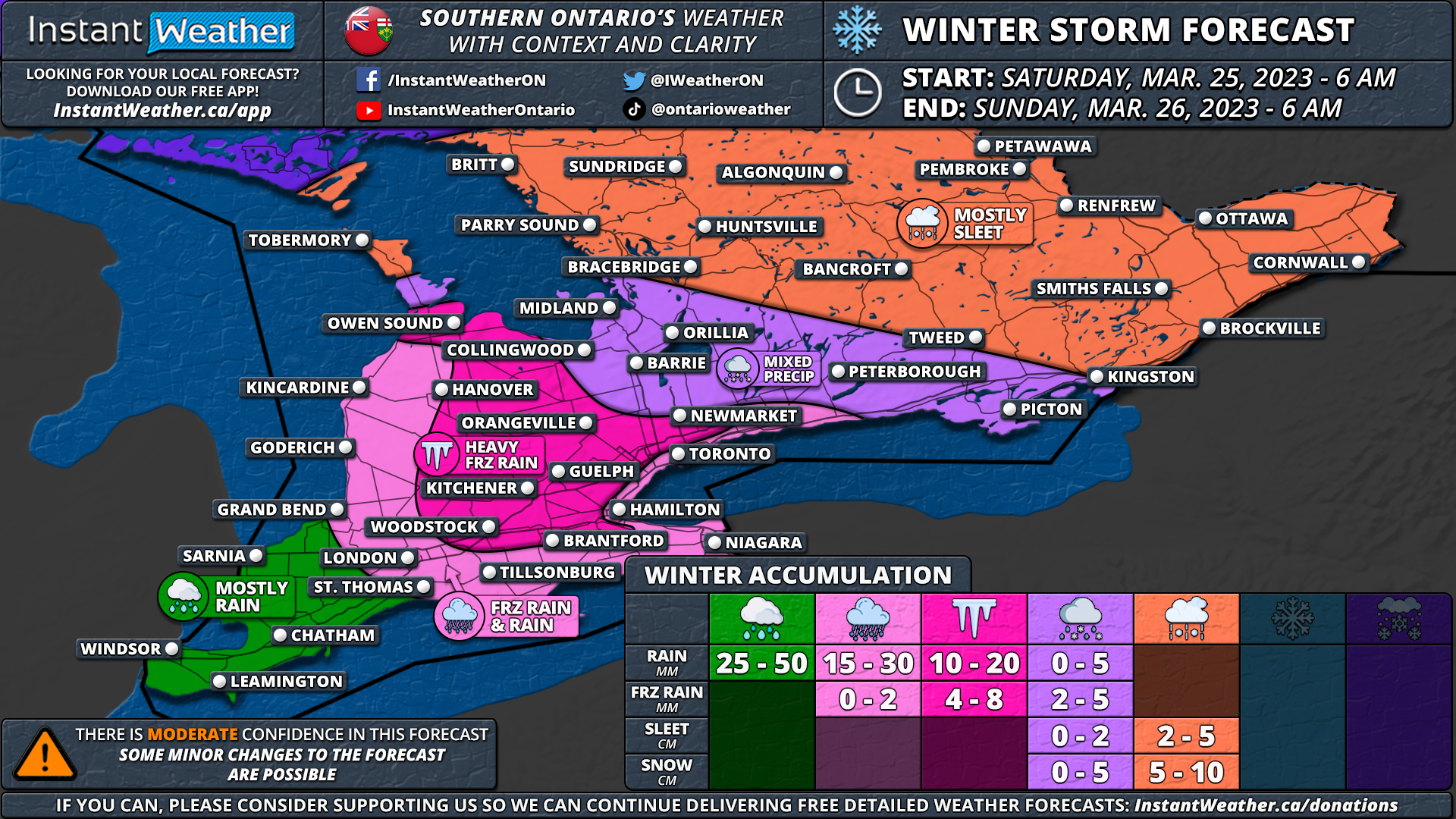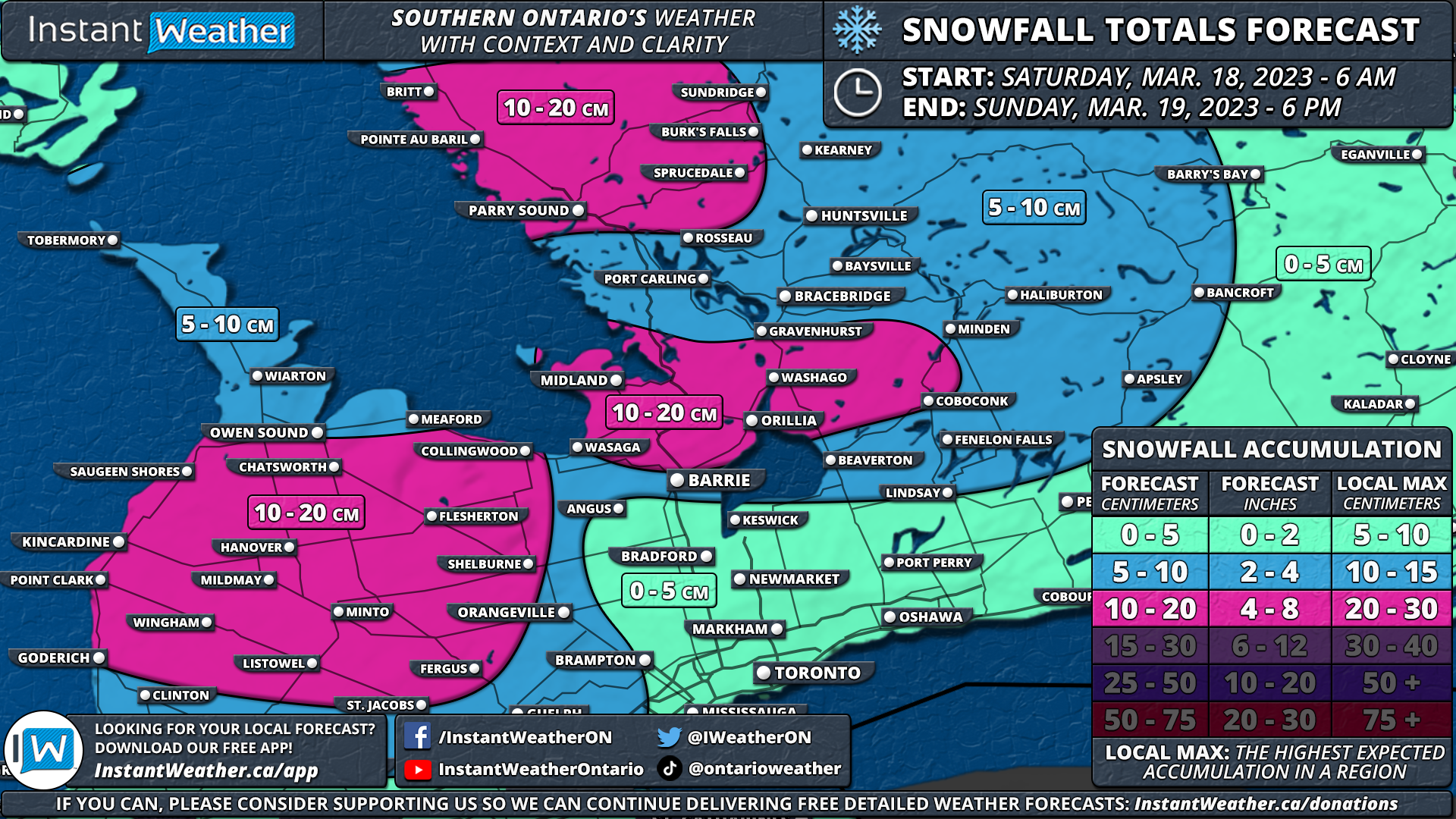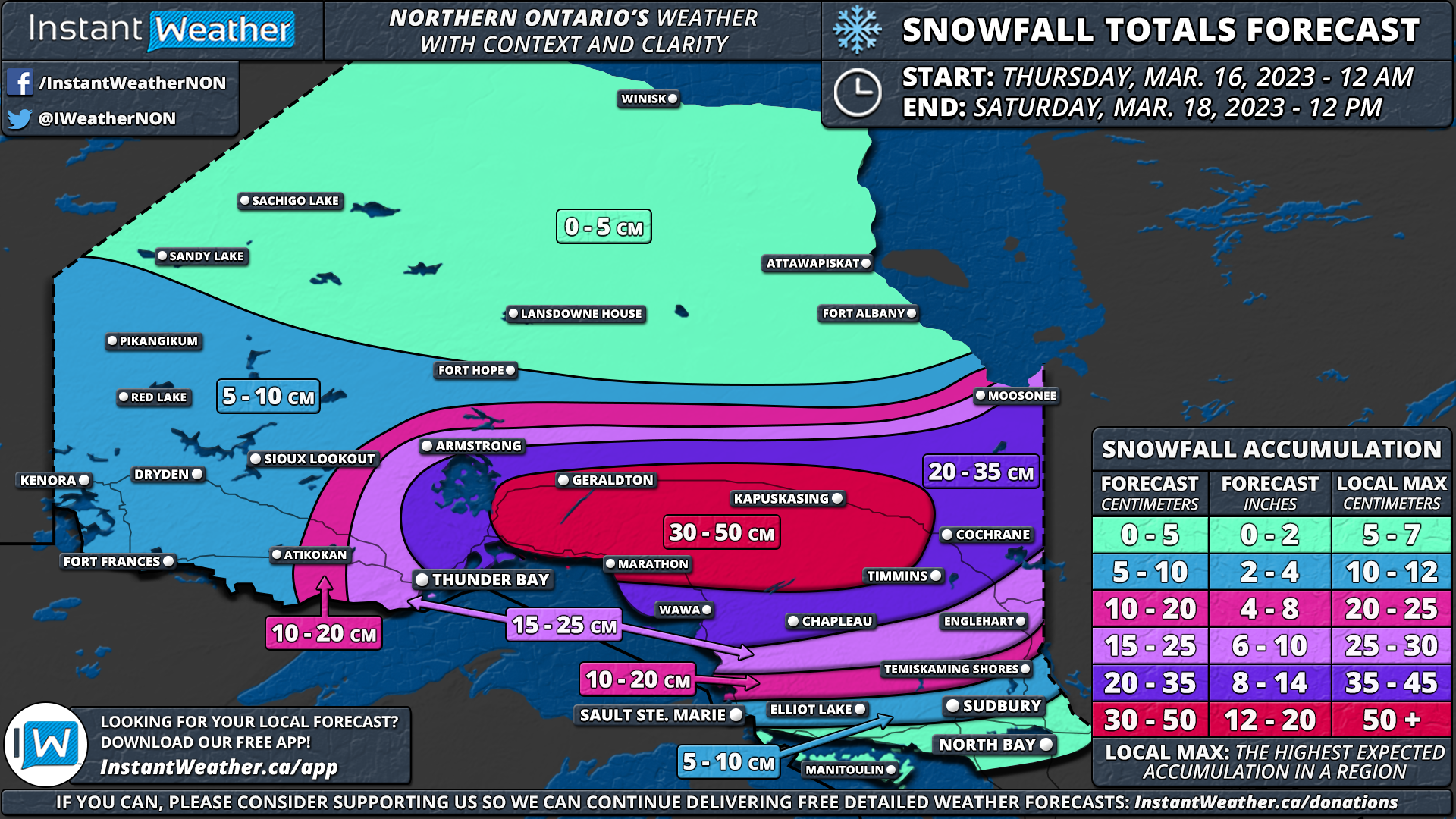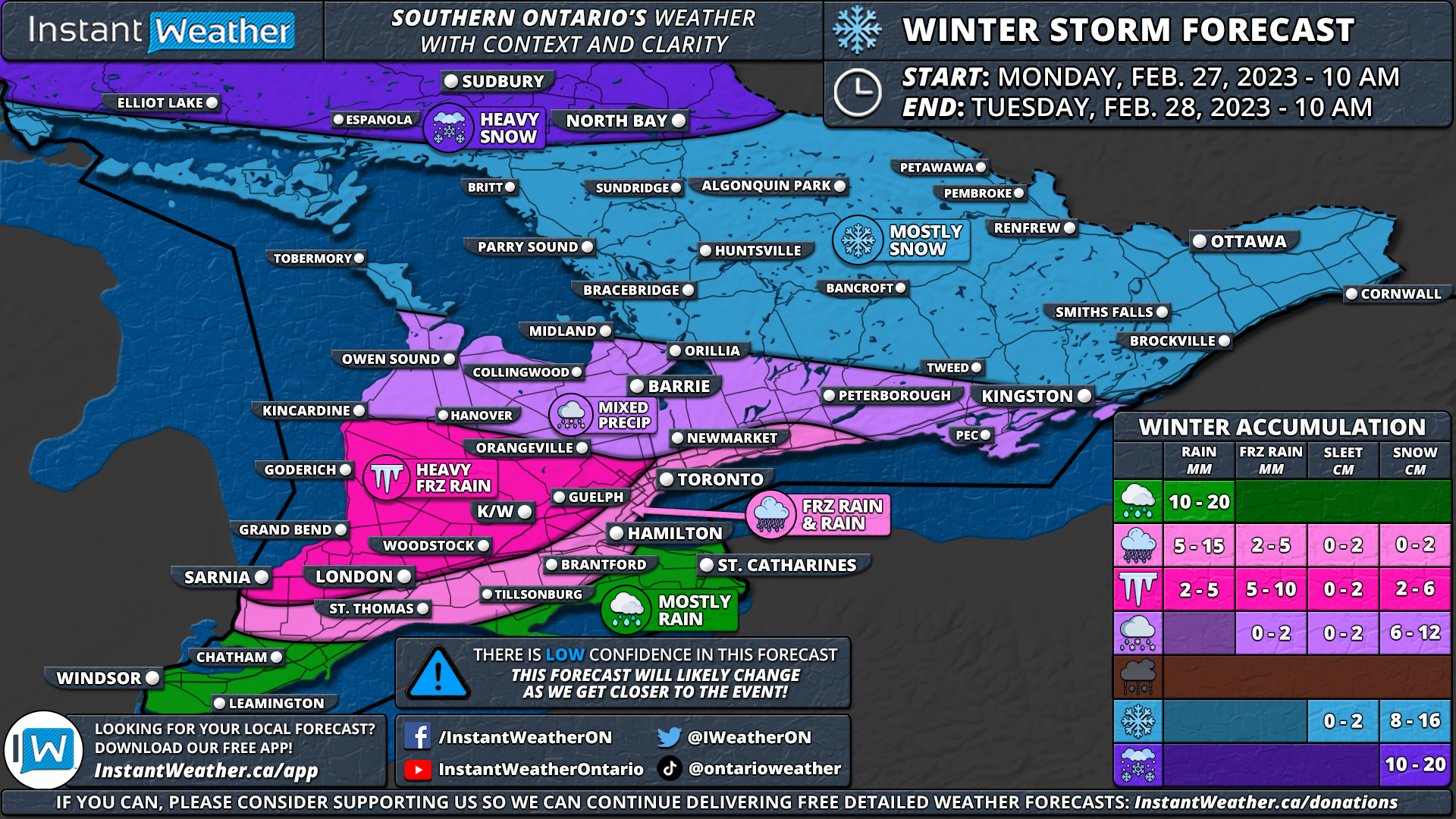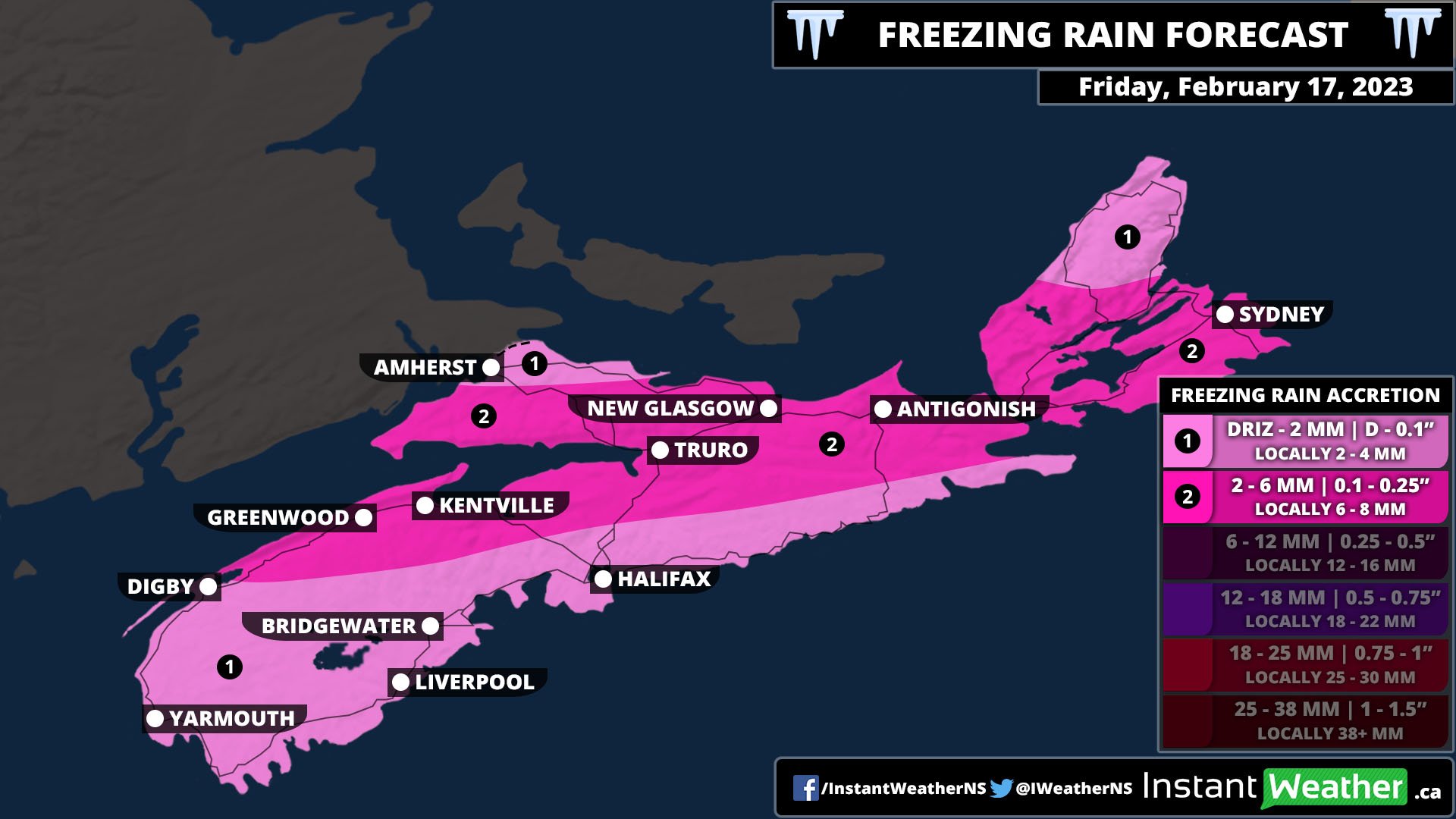First "Elevated" Severe Thunderstorm Risk of 2023 Incoming to Southern Ontario (Wed, Apr 5, 2023)
/Forecaster: Brennen Perry & Adam Skinner
Published: Tuesday, April 4, 2023
A line of severe thunderstorms is possible across Southwestern Ontario on Wednesday and the risk will extend into isolated parts of Central, Niagara and the GTHA. The morning will bring heavy rain, hail and thunderstorms but the afternoon and evening will bring the strongest risk for damaging wind gusts (120km/h+), large hail (2-4cm), isolated flooding (50mm+) and frequent lightning. While the strongest risk remains stateside, the possibility of intense storms crossing continues to increase with each model run.
Here is an advertisement so we can pay the bills:
We’ve also identified an isolated tornado risk for much of Southwestern Ontario, stretching into parts of the GTHA and Niagara. There is a slightly more enhanced risk in deep southwestern Ontario closer to the US border and Lake Erie as well. However, we’ve seen models suggesting the risk could be a bit more widespread and further to the north. We may upgrade this risk but for now, we feel an isolated tornado region covers the chance of isolated tornado spin-ups tomorrow.
Be sure to stay informed and monitor weather updates as this potent storm system approaches. The impact of freezing rain, heavy rainfall, and possible severe thunderstorms, combined with significant ice accretion and potential power outages, could cause some disruptions to daily routines and travel plans.
Make sure to check out our freezing rain and flood risk forecast.
Here is another advertisement so we can pay more bills:




